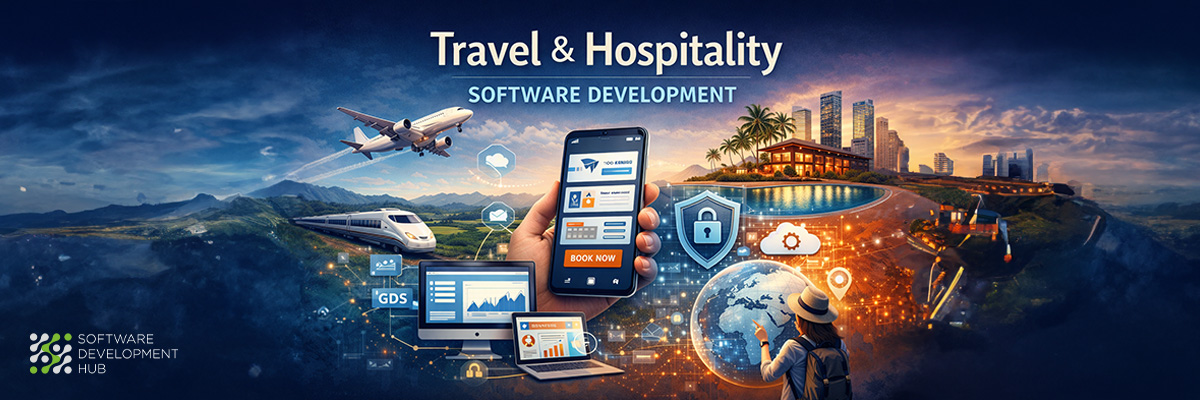Step-by-Step guide to building an AI-Powered MVP
Artificial Intelligence is taking over industries, and the demand for frictionless deployment of AI applications has never been higher. However, the deployment of next-generation AI applications, especially those that are powered by large language models, remains a rather complex challenge. This is where AutoGen steps in-a paradigm-shifting platform designed to streamline and simplify the deployment process. In this article, we talk about what AutoGen is, its main features, the changes it brings, who uses it, and why it's reshaping the future of AI development.
What Is AutoGen?
AutoGen is a next-generation, AI-powered, end-to-end platform to create, deploy, and manage applications-primarily leveraging large language models, LLMs, such as GPT, BERT, or other deep neural networks-and at its core, make the path from concept to deployment as seamless and painless as possible.
AutoGen bridges sophisticated AI models with user-friendly applications, providing tools and frameworks that will enable developers and businesses to seamlessly integrate AI capabilities. Offering automation, optimization, and scalability, AutoGen reduces the friction that often accompanies AI implementation, making advanced technology accessible to a broader audience.
Main Features
The success of AutoGen lies in the powerful set of features it has, designed to address the most challenging issues in AI application deployment. Here are some of its standout capabilities:
- Pre-Built Frameworks
AutoGen provides a set of ready-to-use templates and frameworks for different AI applications, such as chatbots, content generation tools, and analytics systems. These templates avoid the need to develop an application from scratch, thus saving the developers much time and effort.
- Model Integration and Customization
It provides easy integration with state-of-the-art LLMs and allows non-experts to work on fine-tuning those models for their specific needs through an easy-to-use interface. AutoGen makes it quite straightforward for one to fine-tune the model or add domain-specific knowledge.
- Scalability and Optimization
The task of deploying AI applications to handle real-world traffic and data loads is not an easy one. AutoGen simplifies scaling by providing robust cloud infrastructure and optimization tools that keep applications performant and cost-efficient.
- Automation Workflows
AutoGen lets developers automate repetitive tasks such as data preprocessing, model training, and deployment monitoring to reduce manual work and increase productivity.
- User-Friendly Interface
Usability-focused, AutoGen is an intuitive interface designed to support developers and non-technical users in equal measure, democratizing AI application development. Even small businesses can now implement this into their operations without the need for deep technical capabilities.
-
Collaboration and Integration Tools
The platform supports seamless integration with popular development tools, cloud services, and APIs, fostering collaboration among teams and ensuring compatibility with existing workflows.
What It Changes
AutoGen represents a paradigm shift in how AI applications are deployed. Here are some key changes it brings to the table:
- Streamlined Development
Conventionally, deploying AI applications required extensive coding, knowledge of model management, and infrastructure setup. AutoGen simplifies this process, freeing the developer to innovate rather than deal with logistics.
- Cost-Effective and Time-Saving
With the automation of most of the mundane tasks in deploying AI, AutoGen reduces the time-to-market for AI applications considerably. Businesses economize on development costs and can realize quicker returns on investment.
- Accessibility to Non-Experts
AutoGen lowers the technical barrier of entry, allowing non-technical stakeholders or smaller organizations to create and deploy AI-powered solutions. This inclusivity widens the circle of industries using AI.
-
Enhanced Performance and Reliability
Through its optimization tools and robust infrastructure, AutoGen ensures that applications run smoothly and reliably, even under heavy usage. This is critical for businesses looking to scale their AI offerings.
Who Uses It?
AutoGen is tailored for a wide range of users, making it a versatile solution across industries:
- AI Developers
AutoGen's automation and integration capabilities let developers create more complex AI applications with less manpower in a shorter time.
- Businesses and Startups
Organizations wanting to deploy AI in their operations-be it customer service chatbots, recommendation engines, or predictive analytics-find the use of AutoGen invaluable in cost reduction and speeding up deployment.
- Educational Institutions
Universities and research institutions use AutoGen to prototype and deploy AI experiments without requiring large IT teams or infrastructure investments.
- Enterprises Scaling AI Solutions
Enterprises looking to scale AI applications into production use AutoGen for the reliability, scalability, and manageability of multiple projects.
Multi-Agent Conversation Framework
AutoGen provides a unified multi-agent conversation framework that serves as a high-level abstraction for utilizing foundation models. It introduces versatile, customizable, and interactive agents that seamlessly integrate large language models (LLMs), tools, and human input through automated agent chat. By enabling automated communication between multiple capable agents, the framework facilitates collaborative task execution—either independently or with human guidance — including tasks that involve tool usage through code.
The emergence of artificial intelligence has greatly influenced the way machines interact with humans and other machines. One of the exciting developments in this domain is the Multi-Agent Conversation Framework, wherein multiple intelligent agents collaborate, exchange information, and solve problems through conversational interactions. This framework extends the capabilities of individual AI agents and opens up new avenues for innovation in many industries.
What are AI agents?
An AI agent may be such an autonomous entity that perceives its environment, processes information, and takes actions towards the attainment of certain objectives. The agents may run independently, interact with users, or interface with other systems to accomplish their tasks.
Agent and Multi-Agent Systems
While single AI agents are good for specific tasks, they fall short in handling complex, multi-faceted problems. That is where Multi-Agent Systems come in.
A multi-agent system is a system composed of multiple AI agents that cooperate or compete in a common environment to realize individual or collective goals. The agents interact by following established communication protocols, enabling them to exchange information, negotiate, and coordinate actions.
Applications of the Multi-Agent Conversation Framework
- Customer Support
Scenario: A customer calls support for troubleshooting. Various agents are involved: one to handle technical issues, another for billing support, and a third to escalate queries that are not resolved to a human agent.
Benefit: Faster, more accurate resolutions through specialized assistance.
- Healthcare
Scenario: Agents representing doctors, pharmacists, and patients interact to prescribe medication, check on drug availability, and schedule follow-ups.
Benefit: Streamlined communication across stakeholders for better patient outcomes.
- Smart Cities
Scenario: Agents observe traffic and manage energy distribution, making control over public transportation systems optimize the running of a city. Benefit: Enhanced efficiency, sustainability of urban environments.
- Finance and Trading
Scenario: Agents collaborate on market data analysis, trade execution, and risk management in financial portfolios.
Benefit: Better decision-making and real-time responsiveness.
- Game Development
Scenario: Agents control NPCs, simulate scenarios, and adapt gameplay based on player actions.
Benefit: Immersive and interactive gameplays.
Future of Multi-agent Conversational Frameworks
The Multi-Agent Conversation Framework has a bright future in the coming times of AI. With developments that are more advanced in nature, one can come to expect:
- Full Human-Agent Collaboration: Agents operating among humans on a task can enrich human capability.
- Cross-domain applications։ These involve agents that work in several industries and share insights or experience.
- Improved Emotional Intelligence: Ability to understand and respond to human emotions in conversations.
Conclusion
AutoGen is a powerful enabler in the space of AI application deployment. It simplifies the complex, reduces costs, and democratizes access to state-of-the-art technology-all in service of helping businesses, developers, and organizations of all sizes harness the power of large language models. With features for enhancing scalability, optimizing performance, and fostering collaboration, AutoGen is more than a platform-it's a catalyst for the next wave of AI innovation.
As AI continues to revolutionize industries, tools like AutoGen are essential for ensuring that this technology is accessible, efficient, and impactful. Whether you’re a seasoned developer or a business leader exploring AI opportunities, AutoGen is a game-changer worth considering.
The multi-agent conversation framework represents an innovative paradigm shift in the area of how AI systems communicate and collaborate. It opens the possibilities for new automation, problem-solving, and innovation scenarios due to the possibility of collaborating via intelligent conversations between multiple agents.
With more and more of these frameworks being adopted by industries, the future will be one of smarter, better-connected systems that drive efficiency and unlock transformational value. Be it optimizing business operations, crafting personalized user experiences, or even solving global challenges, the Multi-Agent Conversation Framework is poised to redefine the possibilities of AI-driven communication.
Categories
About the author
Share
Need a project estimate?
Drop us a line, and we provide you with a qualified consultation.








